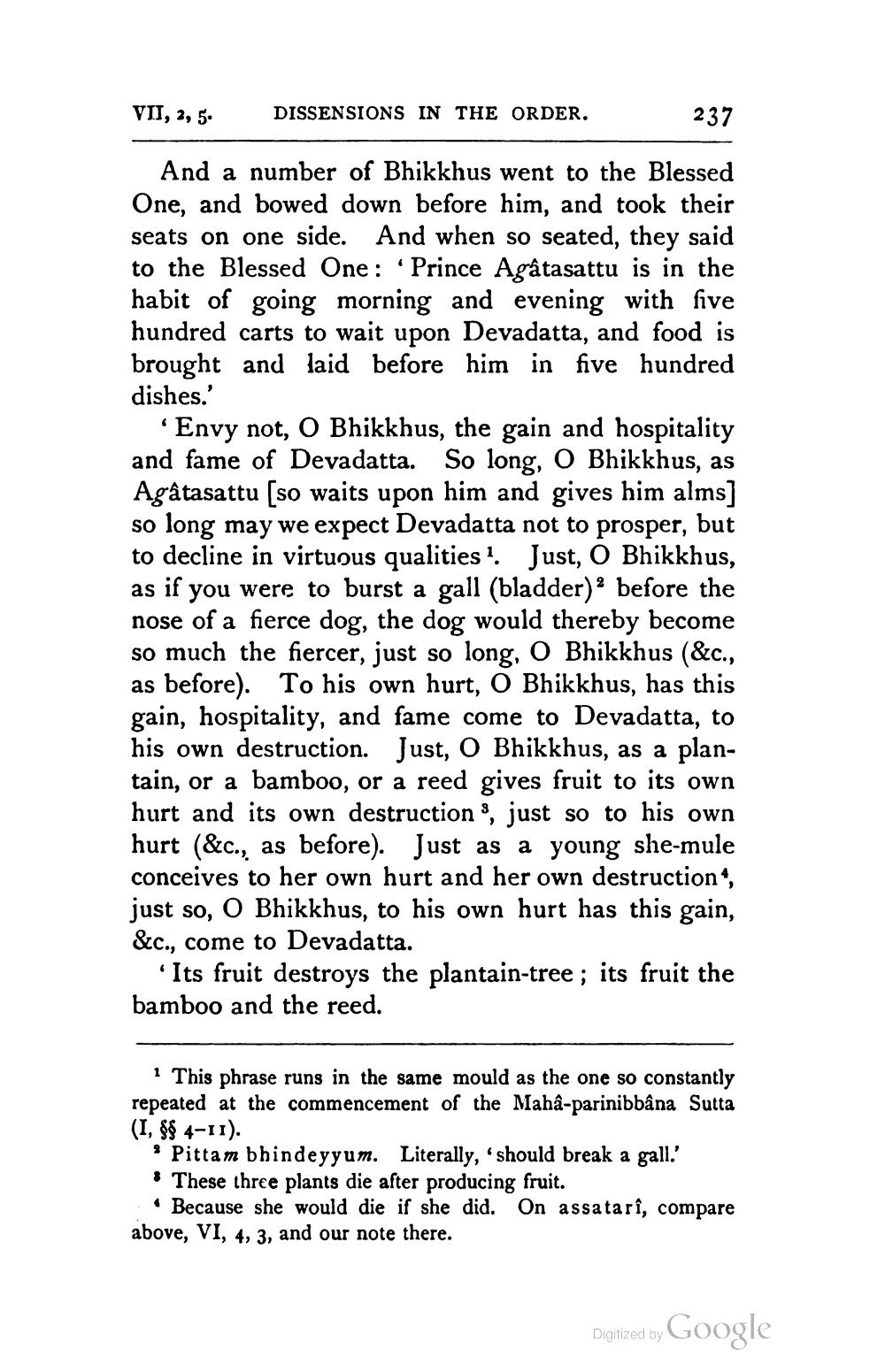________________
VII, 2, 5.
DISSENSIONS IN THE ORDER.
237
And a number of Bhikkhus went to the Blessed One, and bowed down before him, and took their seats on one side. And when so seated, they said to the Blessed One: 'Prince Agâtasattu is in the habit of going morning and evening with five hundred carts to wait upon Devadatta, and food is brought and laid before him in five hundred dishes.'
'Envy not, O Bhikkhus, the gain and hospitality and fame of Devadatta. So long, O Bhikkhus, as Agâtasattu [so waits upon him and gives him alms] so long may we expect Devadatta not to prosper, but to decline in virtuous qualities1. Just, O Bhikkhus, as if you were to burst a gall (bladder) before the nose of a fierce dog, the dog would thereby become so much the fiercer, just so long, O Bhikkhus (&c., as before). To his own hurt, O Bhikkhus, has this gain, hospitality, and fame come to Devadatta, to his own destruction. Just, O Bhikkhus, as a plantain, or a bamboo, or a reed gives fruit to its own hurt and its own destruction 3, just so to his own hurt (&c., as before). Just as a young she-mule conceives to her own hurt and her own destruction*, just so, O Bhikkhus, to his own hurt has this gain, &c., come to Devadatta.
'Its fruit destroys the plantain-tree; its fruit the bamboo and the reed.
1 This phrase runs in the same mould as the one so constantly repeated at the commencement of the Mahâ-parinibbâna Sutta (I, §§ 4-11).
Pittam bhindeyyum. Literally, 'should break a gall.' These three plants die after producing fruit.
Because she would die if she did. On assatarî, compare above, VI, 4, 3, and our note there.
Digitized by Google




